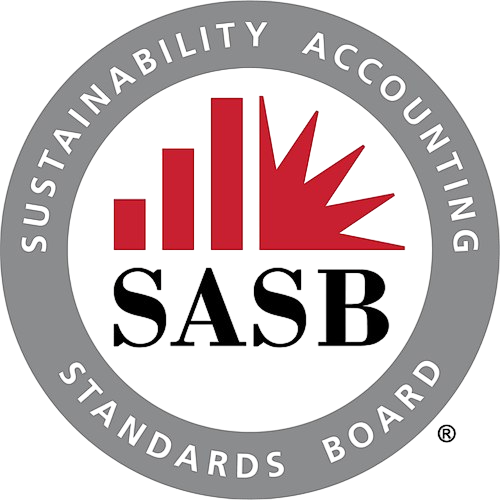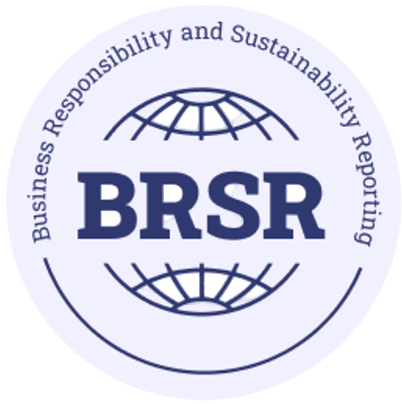ESG Assessment
by SignalX

Why ESG Performance Can’t Be Ignored
In today’s business landscape, ESG (Environmental, Social, and Governance) performance is a decisive factor in securing investor trust, meeting regulatory requirements, and safeguarding brand reputation.
Companies that fail to act on ESG risks face regulatory penalties, investor pullback, and reputational harm, while proactive ESG strategies open doors to new markets, conscious consumers, and long-term resilience.
But ESG responsibility doesn’t end at your own operations. Your supply chain often dominated by MSMEs can be your largest source of ESG risk.
“In an era where sustainability is not just a choice but a mandate, ESGX helps businesses measure, track, and improve their ESG performance with data-driven precision. Whether you're preparing for investor scrutiny, regulatory audits, or market credibility—ESGX has you covered.”
– By Product Team
Turning Risk Insights into Measurable Improvement
Unlike conventional ESG tools that stop at risk detection, ESGX goes further by delivering a Corrective Action Plan after every assessment. This plan guides you to:
Address performance gaps in ESG practices
Track and report progress with supporting documentation
Improve ESG scores over time
Align with global standards like SASB, BRSR, and UN SDGs
The process is fast, cost-effective, and tailored to the Indian market and industry size, making ESG compliance accessible for businesses of all scales especially MSMEs.


Why ESGX Matters
Companies today are judged not just by profits—but by purpose.ESGX helps businesses identify ESG risks and sustainability gaps in their supply chains through disclosure-based assessments, enabling data-backed improvements and better ESG compliance.
The Risk of Ignoring ESG
Reputation loss, regulatory fines, and investor distrust are real threats.
The ESG Advantage
Stronger resilience. Higher trust. Wider market access.
How ESGX Helps
Fast, affordable ESG assessments for your business and supply chain—built for global compliance.
ESG PARAMETERS
Environment
◉ Waste Management
◉ Energy Consumption
◉ Water Stress
◉ Carbon Emissions
◉ Resilience and Sustainability
Social
◉ Employee Recruitment and Inclusion
◉ Occupational health and safety
◉ Employee engagement and satisfaction
◉ Pay Parity and Compensation Fairness
◉ Training & Development
◉ Code of Conduct
◉ Community Engagement
Governance
◉ Supply chain Sustainability and Management
◉ Data privacy and Cybersecurity
◉ Pricing, Integrity and Transparency
◉ Legal and Regulatory Compliance
Environment
Waste Management
Energy Consumption
Water Stress
Carbon Emissions
Resilience and Sustainability
Social
Employee Recruitment and Inclusion
Occupational health and safety
Employee engagement and satisfaction
Pay Parity and Compensation Fairness
Training & Development
Code of Conduct
Community Engagement
Governance
Supply chain Sustainability and Management
Data privacy and Cybersecurity
Pricing, Integrity and Transparency
Legal and Regulatory Compliance
Frameworks Followed In Our Solution




Start measuring, improving, and proving your ESG performance today.
Addressing the Key Barriers to ESG Adoption
Limited visibility into third-party ESG performance
High costs and complexity for smaller suppliers
Absence of a standardised ESG framework for SMEs
Perception of ESG as a compliance burden rather than a growth driver
A Practical Path to Supply Chain Sustainability
With ESGX, businesses can:
Identify and mitigate supply chain ESG risks
Equip MSMEs with an affordable, simplified ESG assessment
Meet evolving compliance requirements with confidence
Build a resilient, transparent, and sustainable supply chain that meets stakeholder expectations
Building Long-Term ESG Confidence Across Your Network
Establish a consistent framework for assessing ESG across all partners
Promote transparency and accountability within your supply chain
Foster trust with investors, regulators, and conscious customers
Demonstrate ongoing commitment to sustainability goals
Strengthen resilience against future ESG-related risks
Ready to take the next step?
Ready to take the next step?
FAQs
ESG stands for Environmental, Social, and Governance. It’s a framework companies use to measure sustainability, ethical practices, and governance standards.
In India, SEBI requires large listed companies to file Business Responsibility and Sustainability Reporting (BRSR), which covers environmental, social, and governance disclosures.
ESG helps investors identify companies that manage risks better, are future-ready, and have sustainable growth strategies, reducing exposure to long-term financial and reputational risks.
Businesses can improve ESG scores by reducing emissions, ensuring supply chain transparency, strengthening governance policies, and reporting with accuracy and consistency.
CSR (Corporate Social Responsibility) is voluntary and philanthropy-driven, while ESG is measurable, standardized, and integrated into business strategy and risk management.
Strong ESG practices reduce risks, improve efficiency, attract investment, and often lead to higher long-term profitability.
Challenges include inconsistent data, evolving regulations, high compliance costs, and lack of in-house expertise for ESG reporting.
Risks are assessed through environmental audits, supply chain reviews, governance checks, and monitoring social impact. Many firms use ESG platforms like SignalX for automated tracking.
Rating agencies analyze factors like carbon footprint, labor practices, governance structure, transparency in disclosures, and exposure to controversies.
Yes. SMEs can start with simple measures energy efficiency, fair labor policies, transparent governance and scale reporting as they grow.
